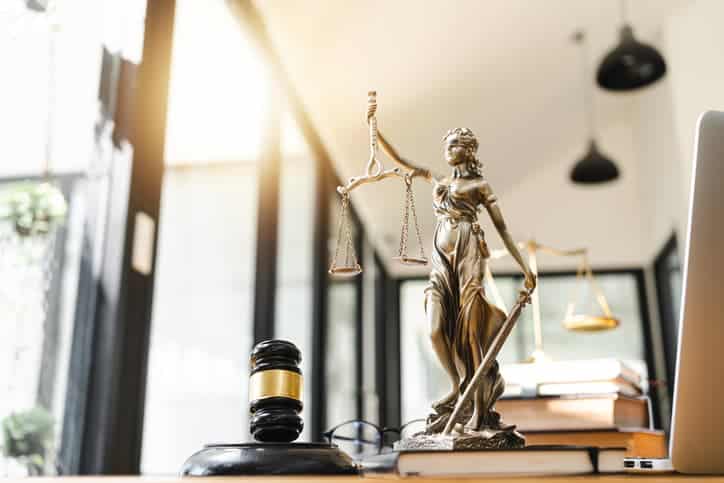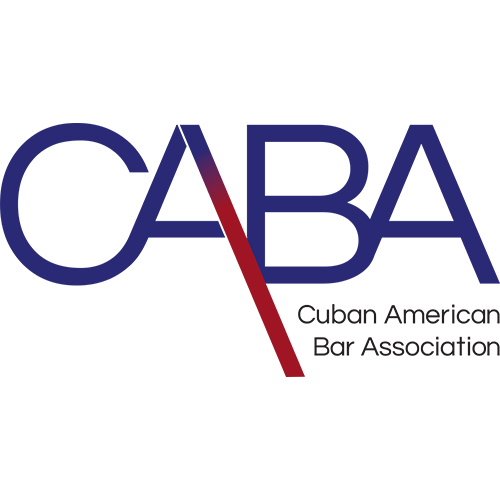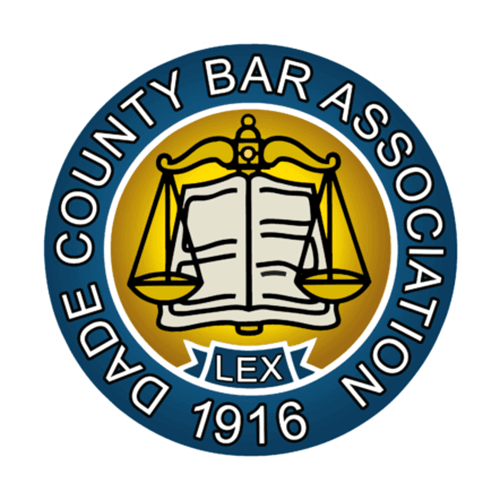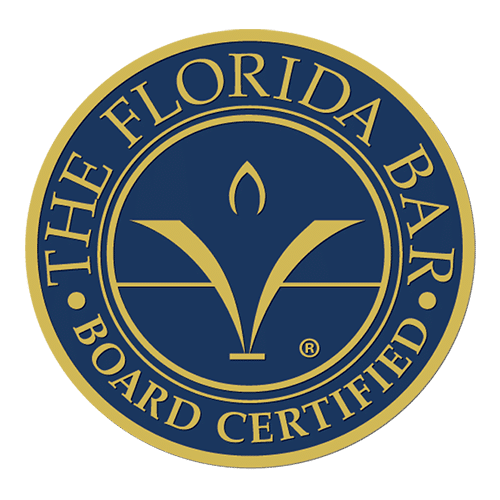Miami Legal Malpractice Attorney
PROTECTING YOUR RIGHTS SINCE 1983
The legal malpractice attorneys at Bernstein & Maryanoff have the knowledge and experience necessary to get the maximum compensation for your malpractice case.
reviewed for Accuracy
The content on this page has been produced and reviewed in accordance with our editorial guidelines. This content has been reviewed and approved by founding Personal Injury Attorney Jack G. Bernstein who has over 40 years of legal practice experience.
Trusted Miami Legal Malpractice Attorneys
With offices in Miami and across Florida, the law firm of Bernstein & Maryanoff has the resources and experience to take on the largest cases of professional malpractice. The firm’s attorneys and staff are dedicated to helping each client pursue the maximum compensation for their losses.
After a car accident, during divorce proceedings, or when handling a business transaction you may look to an attorney for help. In most cases, an attorney is an invaluable asset to his or her client, serving to protect their legal rights and representing their interests in the matter at hand. Occasionally an attorney fails to live up to what their client bargained for in seeking legal representation, and ultimately the attorney has not adequately served the client’s interest. Under these circumstances, the attorney may be liable to the client for legal malpractice.
Legal Malpractice Attorney Consultation
If an attorney failed to provide you with adequate legal representation, you may have a valid legal malpractice claim. If in handling your legal matter your lawyer made a mistake that no reasonable attorney would have made, and you lost money because of it, you can sue your lawyer for malpractice. Your lawyer failing to do something (such as file a document on time) or doing something that a lawyer should not do (such as represent two parties at the same time whose legal interests are against one another) may constitute legal malpractice. In our experience, we have noticed there are some common cases of legal malpractice that you may have fallen victim to.
If you feel you may have a case against an attorney for legal malpractice, you should consult a legal malpractice attorney for professional advice about your potential claim.
While every potential legal malpractice case is different depending on specific facts and circumstances, there are a number of situations that frequently give rise to a malpractice claim against an attorney.
Reasons to File For Legal Malpractice
The Statute Of Limitations and Procedural Errors
In order to bring a lawsuit on your behalf, your attorney must file the initial papers (usually called a complaint) within a certain amount of time, or the suit will be barred by what is known as a “statute of limitations.” For example, the time in which most personal injury claims must be filed is one year from the date of the accident or injury.
If your attorney miscalculates the statute of limitations in your case, or if he or she simply forgets to file the initial papers in time, you may have a legal malpractice claim against your attorney. In comparison with other types of malpractice suits, a claim based on an attorney’s failure to comply with the statute of limitations is typically easier to prove than other types of malpractice suits, such as those based on a lawyer’s competence in handling a case.
In addition to the statute of limitations that applies to your particular case, the rules of civil litigation (often called Civil Procedure rules), and the set of rules in place in a particular court require attorneys to follow certain legal and filing procedures in dealing with the courts, other attorneys, and third parties. If your attorney fails to comply with these rules, and your legal rights are compromised as a result, you may have a viable legal malpractice claim.
Conflict Of Interest
Under attorney ethics and professional responsibility codes, attorneys owe their clients a duty to avoid situations that can lead to an actual or potential “conflict of interest.” If an attorney’s judgment in professional representation of one client is (or may be) affected by the attorney’s dealings or familiarity with another party this may constitute a conflict.
If your lawyer is aware of any actual or potential conflict of interest that may affect your case, she has a duty to tell you about it. In most situations, if the attorney discloses the conflict of interest to all affected parties, and informs them of the facts and consequences of dual representation, such representation without more will not amount to malpractice.
Poor Communication

In relationships, communication is everything, and the attorney-client relationship is no exception. Remember that your attorney is representing you and your legal rights, so you should be kept in the loop at every step of your case. For example, an attorney should never make a demand for settlement, or accept a settlement offer, without consulting the client and obtaining his or her approval. An attorney must also keep the client up to date and well-informed on the status of the case.
Keep in mind though that sometimes the progress of litigation can be slow going, so often there may be no daily or even weekly developments in your case. One of the most common client complaints is that their attorney does not return phone calls and does not keep them up to speed on their case. While this may be a valid complaint in certain instances, the reason for seemingly poor communication may simply be that there are no recent developments.
In a nutshell, your lawyer should give you a basic description of your legal matter and let you know what problems to expect, how they’ll be handled, and when things are likely to happen. Your lawyer should also answer your concerns about your case, keep you informed with progress, and consult with you on developments in your case as they arise.
Competence

There is no guarantee of competence when you hire a lawyer, despite public expectations to the contrary. Although licensed lawyers will have passed a bar exam, one test given at the very beginning of a lawyer’s career isn’t very significant in gauging skill and competence.
Any attorney who decides to take any case has a duty to the client to possess and use the skills, knowledge, and ability that are ordinarily used by lawyers under the circumstances. Issues of competence arise where an inexperienced attorney takes on a complicated legal matter and commits obvious and costly mistakes, or when an attorney completely neglects a client’s case in favor of others in his or her caseload.
Put simply, if a lawyer makes a mistake in handling a legal matter that no reasonable attorney would have made under the same circumstances, and the client suffered economic harm because of that mistake, the lawyer may have committed legal malpractice.
Fee Issues

Disputes about payment for legal services are one of the most common areas of contention between attorneys and clients. Most complaints have to do with bills being too high, or charges being different from the amount agreed upon. But your lawyer is also required to properly keep track of all client property that comes into the lawyer’s possession, and to hold separate certain funds coming in from clients.
Elements of a Legal Malpractice Claim
The elements of a legal malpractice claim against an attorney, or what you will need to show to be successful in your suit, are:
- The existence of an attorney-client relationship;
- The attorney acted (or failed to act) in violation of a duty owed to his or her client;
- That action or inaction caused actual injury to the client, such as loss of the underlying case, or financial damage in the underlying business dealing;
- The client would have succeeded or benefited in the underlying matter were it not for the attorney’s violation of his or her duty to the client;
- The client would have been able to collect any judgment or award in the underlying matter.
Responsibility for Acts of Others
You may have a legal malpractice claim against your attorney based on the acts of people other than him or her, including associate attorneys, law clerks, or support staff. This is because your attorney is ordinarily responsible for the actions of those he or she employs. In addition, if your attorney is employed by a large law firm or corporation, that business entity may be liable for legal malpractice based on the action (or inaction) of the individual attorney acting in the ordinary course of business.
Pursuing Your Legal Malpractice Claim
The different situations discussed above are common examples of circumstances that can form the basis of a legal malpractice action, but they are in no way meant to cover every possible ground for a malpractice claim. Lawyers can be held liable for malpractice in hundreds of situations, including sexual harassment of clients or bribery of court officials. The facts of your case may not match any of those discussed here, but you may still have a valid malpractice claim against your attorney if, generally speaking, in representing you your lawyer acted (or failed to act) in a way that no reasonable attorney would have, and you lost money because of it.Bringing a lawsuit against any professional is challenging, and a legal malpractice claim may be more difficult to prove than other liability cases. If you feel you may have a case against an attorney for legal malpractice, you should consult a legal malpractice attorney for professional advice about your potential claim.
DISCLAIMER: This site and any information contained herein are intended for informational purposes only and should not be construed as legal advice. Seek competent legal counsel for advice on any legal matter.






